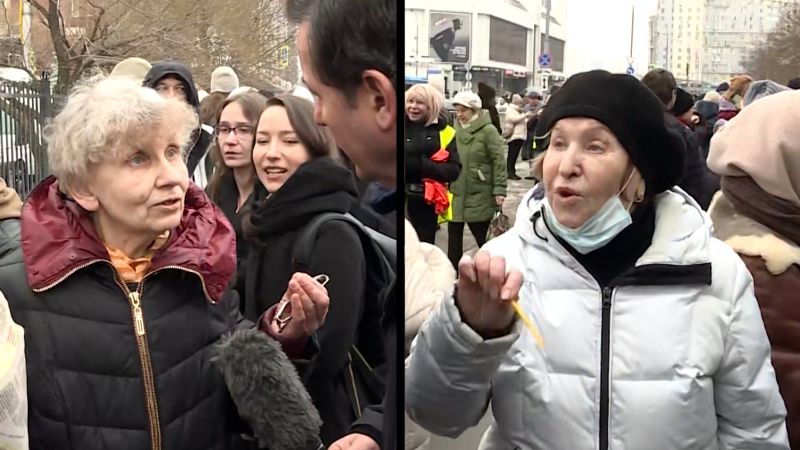The images were stirring: Alexey Navalny’s mourners lining up on Friday around the Church of the Icon of the Mother of God in Moscow’s Maryino district, risking arrest to pay final respects to a man they call their hero.
Each red carnation clutched by a supporter of the Russian dissident can be seen as a small act of resistance in a country where the state has cleared the landscape of all political competition. And one of the chants of Navalny’s supporters at the funeral – ne prostim (we won’t forgive) – seemed directed at Russian President Vladimir Putin.
But the fact that Navalny’s funeral went ahead, after two cruel weeks of bureaucratic delay and official obfuscation, is perhaps a sign of the Kremlin’s confidence. Its crackdown on dissent is so complete, and genuine political opposition so marginalized, that the event was allowed to take place. The funeral of Navalny was the funeral of the Russian opposition movement – for now.
To be sure, a heavy contingent of police was on hand to make sure the event did not veer outside the boundaries of acceptable protest. Independent monitoring group OVD-Info reported that 91 people were arrested in 19 cities around Russia on the day of Navalny’s funeral, far fewer than the hundreds arrested on the day of Russia’s full-scale invasion of Ukraine.
The full-scale invasion of Ukraine raised the stakes for public protest in Russia, introducing strict new criminal penalties for defaming the country’s military. Hundreds of thousands of Russians went into exile, many of whom were part of Navalny’s constituency. The person who has assumed the mantle of Navalny’s charismatic leadership – his widow, Yulia Navalnaya – is out of the country, and does not immediately present a direct political threat to Putin, who is poised to sail to re-election in two weeks. That all makes Friday’s turnout more remarkable, but what future is there for Navalny’s form of opposition?
Navalny returned to Russia following his recovery from nerve-agent poisoning in 2021 precisely because he wanted to remain an active player in politics. And his form of digitally engaged activism continued, even as state prosecutors piled on charges against him.
For that, he paid the price: Whatever the ultimate cause of his death in prison, Navalny’s term in a remote penal colony north of the Arctic Circle was designed to break him physically and psychologically.
Behind bars, Navalny had remained a potent symbol of resistance, sending messages that poked fun at the prison administration. Even in death, his sense of humor and pop-culture savvy surfaced. Kira Yarmysh, his spokeswoman, noted that music from an Arnold Schwarzenegger blockbuster was played as his body was laid to rest.
“Alexey considered Terminator 2 the best film on earth,” she wrote. “Music from the final scene was played at his funeral.”
To quote the Terminator, Navalny will be back.
“Schoolkids hear about heroes in schools but here we have a true hero which we were happy to work with through the years,” his longtime aide Maria Pevchikh said in a live YouTube broadcast on Friday. “Navalny will become a giant figure in Russian history,”
But while Putin is in power, the anti-corruption activist’s name will not be seen on streets and squares. So how long Russian schoolchildren will wait for him to enter their history books is a very open question.











